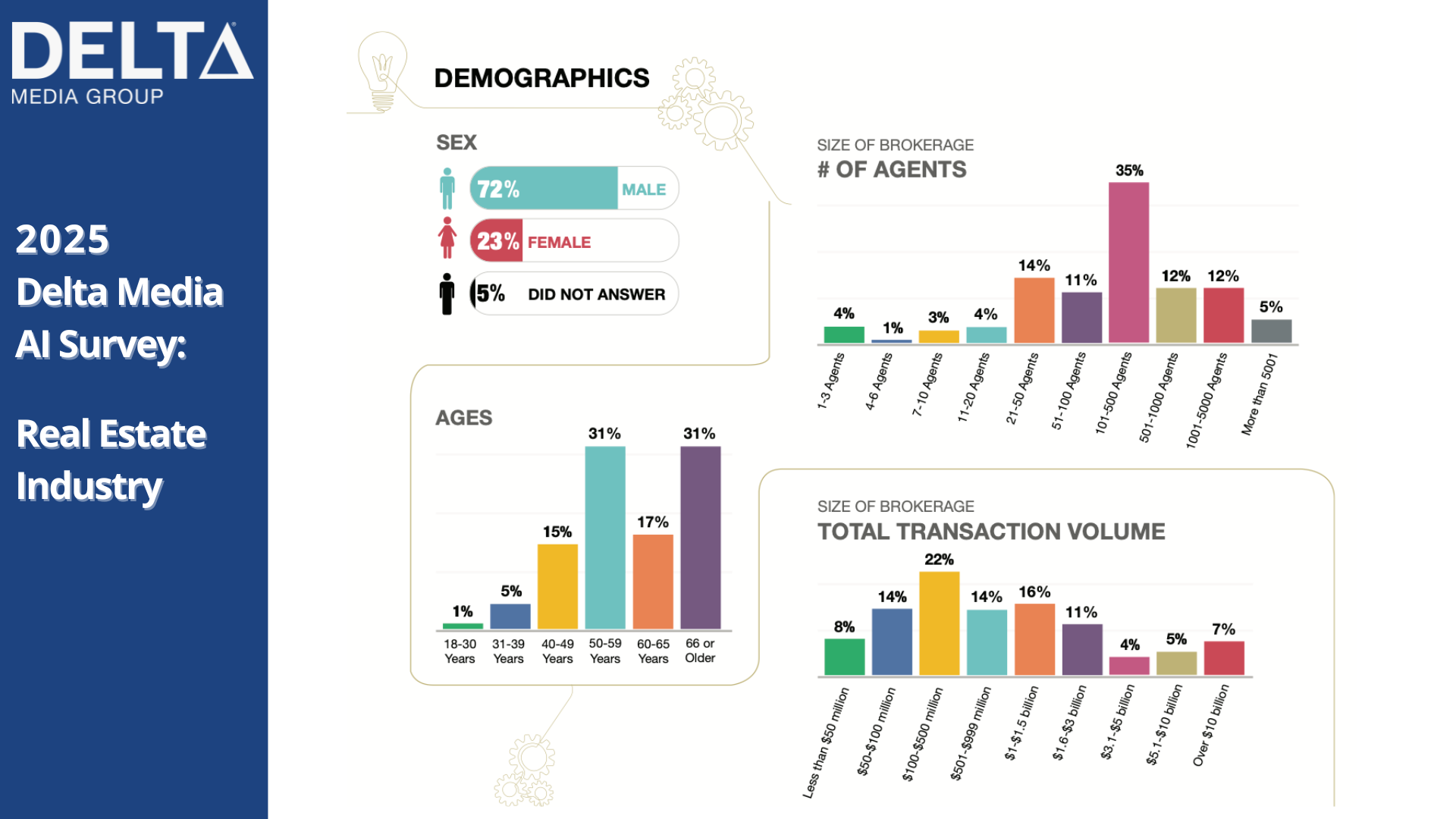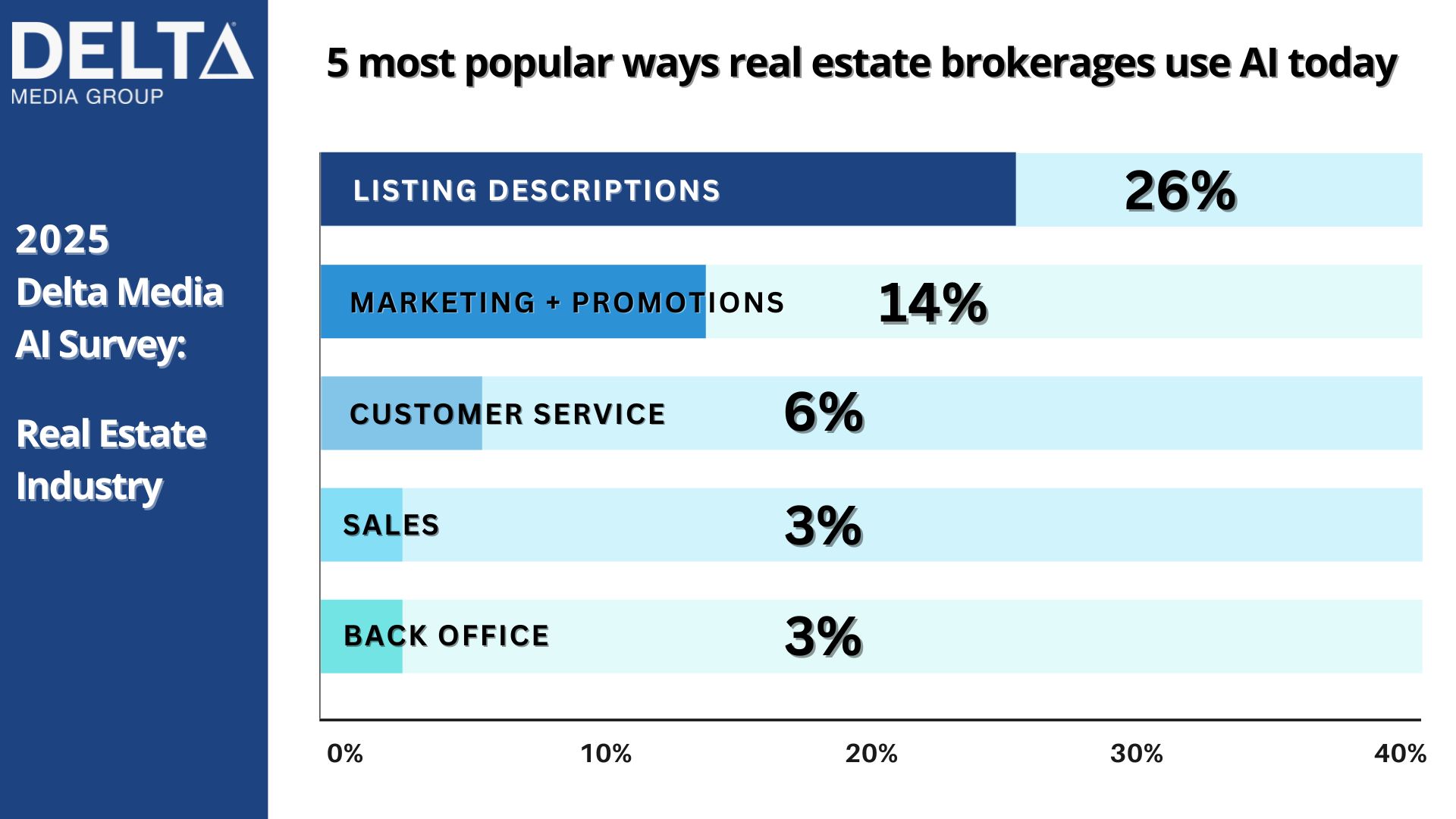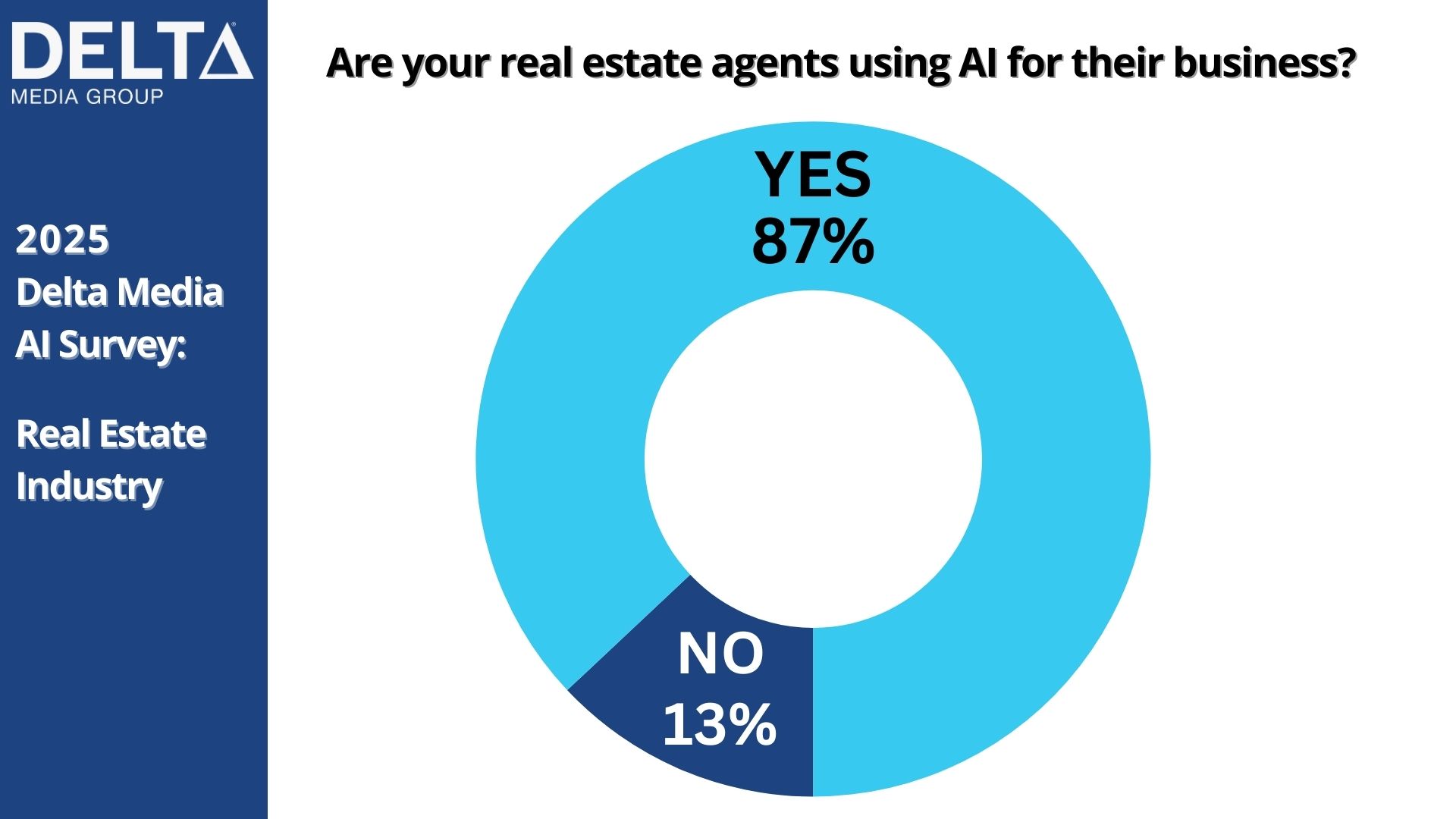The widespread adoption of artificial intelligence in the real estate industry has become nearly ubiquitous, according to Delta Media’s 2025 Real Estate Leadership AI Survey.
Delta’s survey found that nearly nine-in-ten real estate brokerage leaders report that their agents are actively using AI tools, underscoring a dramatic 7% increase in adoption from last year’s survey. Yet, while adoption accelerates, concerns over risks tied to AI have significantly eased, with the number of leaders “very worried” about safeguards dropping by eight percentage points since 2024.
“AI is no longer a new shiny object; it’s fast become an irreplaceable tool for brokerages and agents alike,” said Michael Minard, CEO and owner of Delta Media Group. “This year’s findings show AI is more integrated across brokerage operations, growing beyond marketing and content creation to areas like customer support and administrative automation.”
The survey—which Delta stated was conducted with over 100 residential brokerage leaders collectively responsible for more than half of all US real estate transactions last year—underscores a remarkable year in AI adoption and sentiment. Leaders rated AI’s current importance to the industry at 5.9 out of 10, up from 5.0 in 2024, with expectations for AI’s future importance rising to 7.2 out of 10—a 22% increase over current levels.
Key findings:
- Broader adoption across all demographics: Age-based differences in AI usage have disappeared, signaling mainstream adoption across all age groups. “AI is no longer just for younger agents—agents of all ages are using AI today,” Minard pointed out. Gender gaps have also narrowed, with over 87% of male leaders and 82.6% of female leaders reporting active AI use within their brokerages. “Last year, a greater percentage of female leaders utilized AI in their brokerages than male leaders (85.3% versus 70.4%). Male leaders have closed that gap,” Minard continued.

- Top use cases for AI: Creating property descriptions remains the leading application, but brokerages are increasingly leveraging AI for digital marketing, client communications, data analysis, and automating administrative tasks. Operational efficiency has become a driving force behind AI integration.

- Easing risk concerns: The percentage of leaders highly concerned about AI risks fell from 50.4% in 2024 to 42.2% in 2025. Leaders of larger brokerages with higher transaction volumes report the least concern, citing better access to resources and safeguards.
- Operational shift: Brokerages are moving away from purely marketing-focused AI applications to broader operational uses. This maturation of AI strategies reflects a shift toward holistic technology integration.
Profiles of AI adoption:

- Most likely to adopt AI: Medium to large brokerages (101-500 agents; $101-$500 million in transaction volume) lead in adoption, leveraging scale and resources to implement AI effectively.
- Least likely to adopt AI: Smaller brokerages (fewer than 20 agents; under $50 million in transaction volume) face barriers such as resource constraints, limiting adoption despite AI’s growing accessibility.
What’s next for AI in real estate
Delta noted that real estate leaders expressed anticipation that 2025 will mark a turning point for AI, with trends pointing to expanded use in administrative automation and customer service applications.
“The Delta survey highlights a growing belief that AI will redefine operational efficiency, helping brokerages navigate economic and market challenges with greater agility in 2025,” concluded Minard.
For the full report, visit https://bit.ly/deltaAI.












